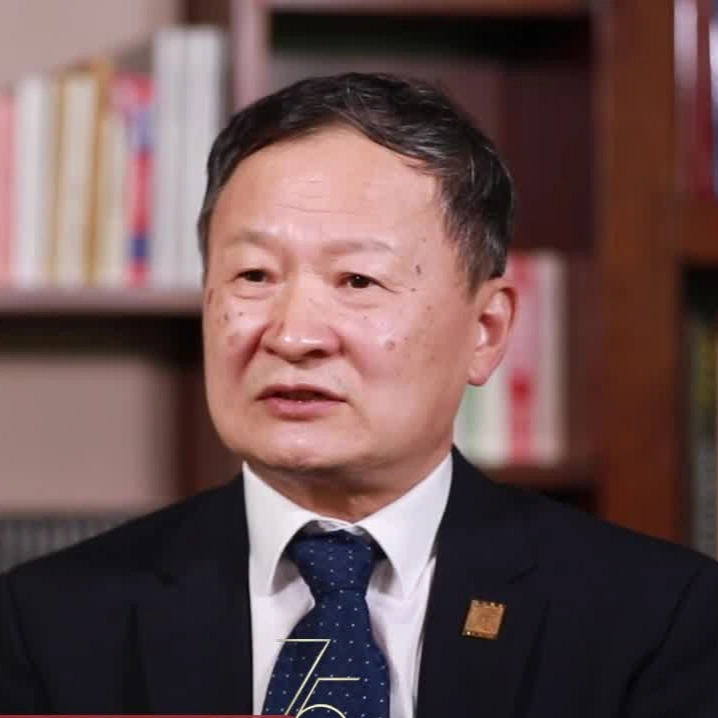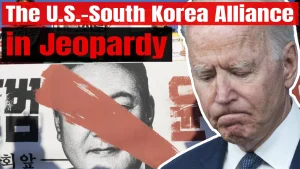What Does Belarus-China Alliance Mean for the US
 Chinese President Xi Jinping meets with Belarusian President Alexander Lukashenko on the sidelines of the Shanghai Cooperation Organization summit in Astana, Kazakhstan, July 4, 2024.
Chinese President Xi Jinping meets with Belarusian President Alexander Lukashenko on the sidelines of the Shanghai Cooperation Organization summit in Astana, Kazakhstan, July 4, 2024.
On July 4th, Belarus officially joined the Shanghai Cooperation Organization (SCO). The American media outlet CNN reacted strongly to it, with a headline stating, “A growing club led by Xi and Putin to counter the US is adding a staunchly pro-Russia member”.
From this, it is clear that CNN simply perceives the SCO as a collective action against the US, failing to truly grasp the revolutionary impact this security organization has on the international landscape. However, Belarusian Foreign Minister Maxim Ryzhenkov’s brief remark elucidated this situation more thoroughly than CNN. He pointed out, “It is a strategic perspective. The SCO is a new security.”
What is new about this “new security” represented by the SCO?
Firstly, the motivation for uniting its members is different.
Western security organizations, such as NATO, are essentially military alliances. That means once a member declares a foreign war, other allies have to rush to the warband recklessly. It has been the typical model for Western security organizations since the Treaty of Westphalia.
Rather than acting as a military bloc for foreign war, the partnership between the member countries of the SCO is genuinely focused on anti-terrorism cooperation, primarily targeting terrorist organizations that threaten member countries and safeguarding common security interests.
Secondly, the mechanism for ensuring security is different.
CNN got one thing right: the SCO is indeed not led by Western countries. China and Russia, due to their strong national strength, have consistently played significant roles in maintaining the security of SCO member countries. However, by helping more countries eliminate the threat of terrorism, China and Russia are disrupting the US’s ability to create security demand.
Since World War II, the US has been dominant in international security affairs, by threatening other countries and deliberately creating security issues to coerce them into seeking US aid. This is evident from the fact that the US has initiated the most wars since World War II. In the US-dominated security system, being an enemy of the US is dangerous, and even cooperation with it can be fatal, as Saddam Hussein has certainly attested.
The SCO’s operational mechanism is fundamentally different from the US-led global security hegemony because its member countries do not threaten each other or other countries. It is an organization aimed at common security and represents a successful attempt at international security cooperation.
However, the success of the SCO threatens the US’s monopoly on providing security services in international politics.
Therefore, it is not surprising that such an anti-monopoly organization faces criticism from the West. From the perspective of the US, which seeks to maintain its global hegemony, the growth of the SCO indeed poses a challenge. After the dissolution of the Soviet Union, NATO countries in Europe have become vassals of the US to varying degrees in terms of security policy. Hence, some criticism or caution from Europe is also unsurprising.
In my 2017 book “China’s Role in Future World,” I discussed how, as the unipolar system dominated by the West gradually disintegrates, multiple centres and strength poles will emerge globally. The SCO can be seen as a new centre and pole in international affairs. On one hand, it addresses its members’ own security, and on the other, it changes the global security landscape. For countries and organizations that previously dominated global security, it makes sense that they view the SCO as a “challenge” from their stands.
However, there are always exceptions, and India’s recent behaviour is difficult to understand from the standpoint of its interests.
Amid the trend towards a multipolar world, Indian Prime Minister Narendra Modi deliberately missed the recent SCO summit, possibly to showcase India’s independence and maintain a certain degree of balance between China, Russia, and the US to gain global influence.
However, India lacks the capability to expand its influence and invest resources commensurate with the influence it seeks. It should not be forgotten that its invitation to join the SCO largely came from Russia’s recommendation. Therefore, Modi’s deliberate absence to please the West is most awkward for Russia. This significantly damages India’s national credibility. Now, the world knows that India is fickle, so who will dare to consider India a real friend in the future?
Modi’s decision not only fails to expand India’s influence but may also backfire. India often prides itself on being a country with global ambitions. But now, simply fearing Western criticism for being close to Russia, Modi does not even dare to attend a meeting. I doubt whether such a non-committal country can achieve the status it aspires to on the global stage. I even question whether India can maintain its current status in regional affairs in the future.




